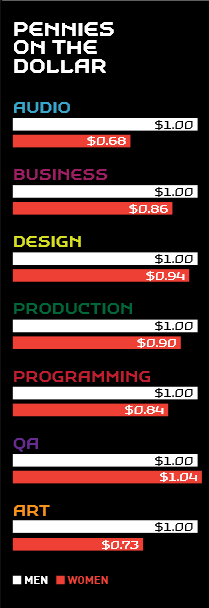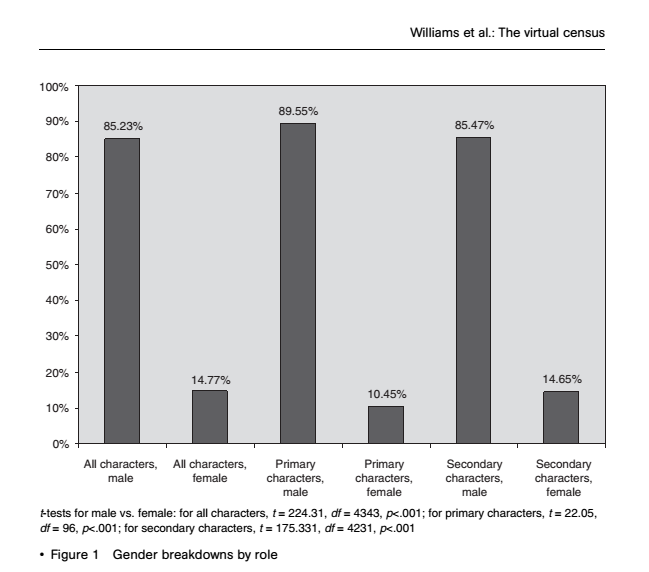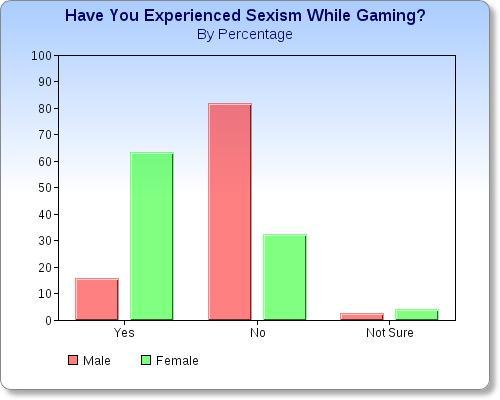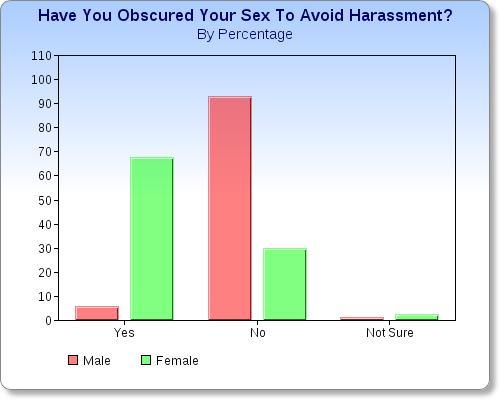Disclaimer: There might be some people who don't know about GamerGate, and rather than make this thread solely about what GG is and their history, I'm posting these videos that Malmrose Projects cited as reference material, and I would like to post them so that we can all begin on the same page:
Why Are You So Angry? Part 4: An Autopsy on GamerGate
Folding Ideas - #GamerGate
Depression Quest and the Rhetoric of Gamer Identity
If you really don't know what GG is, then educate yourself with these videos (at least one!). Don't ask us to do your homework, please! Also, I kindly ask you to please not shut down this discussion down simply saying that you only play videogames for fun or with other similar posts.
Anyway, this YouTube user I follow called Malmrose Projects, who does video analysis about movies from directors like David Lynch and Stanley Kubrick, and even music artists like Queens of the Stone Age released a series of videos on Male Dominance in Gaming, which I've found very interesting. She's studying sociology, so I thought that her videos can nurture a better discussion in gaming academia.
It is a very long series, being a 9-parter, but I think it is one of the most complete series of videos on the topic. Since I have seen people say "videogames don't affect how people think" and other arguments that could be dispelled by the videos, I think it's good that we educate ourselves in the topic and become more inclusive.
Introduction & Thesis (Part 1):
What Causes Male Dominance? (Part 2):
https://www.youtube.com/watch?v=6Mq1bBAr0-I
What do Gamers Say? (Part 3):
https://www.youtube.com/watch?v=6Mq1bBAr0-I
(One comment he got when he did the survey was so bad he had to note it in the video)
Privilege, Discourse, and Framing (Part 4):
https://www.youtube.com/watch?v=RtrD0codDxs
The Gaming "Debate" (Part 5):
https://www.youtube.com/watch?v=kaDm9lbH22w
The Troubling Implications of "Objectivity" (Part 6):
https://www.youtube.com/watch?v=5eIN7WJ1q5o
How Games Change Perception (Part 7):
(Also talks about the male gaze through videogames)
https://www.youtube.com/watch?v=u6Wkm2I0bzY
Harassment (Part 8):
https://www.youtube.com/watch?v=KLCG82oKl4U
Where Do We Go From Here? (Part 9):
This thread took days (!) to make, so I hope you enjoy (and hope that this thread doesn't die quickly like my previous threads in the previous forum)!
Why Are You So Angry? Part 4: An Autopsy on GamerGate
Folding Ideas - #GamerGate
Depression Quest and the Rhetoric of Gamer Identity
If you really don't know what GG is, then educate yourself with these videos (at least one!). Don't ask us to do your homework, please! Also, I kindly ask you to please not shut down this discussion down simply saying that you only play videogames for fun or with other similar posts.
Anyway, this YouTube user I follow called Malmrose Projects, who does video analysis about movies from directors like David Lynch and Stanley Kubrick, and even music artists like Queens of the Stone Age released a series of videos on Male Dominance in Gaming, which I've found very interesting. She's studying sociology, so I thought that her videos can nurture a better discussion in gaming academia.
It is a very long series, being a 9-parter, but I think it is one of the most complete series of videos on the topic. Since I have seen people say "videogames don't affect how people think" and other arguments that could be dispelled by the videos, I think it's good that we educate ourselves in the topic and become more inclusive.
Introduction & Thesis (Part 1):
Malmrose Projects said:But it needs to be addressed because the results of the [Feminist Frequency] Kickstarter were sort of a canary in a coalmine for the overarching topic of this video, which is how gaming culture maintain male dominance.
The Kickstarter that Anita launched brought a very strong wave of harassment towards Anita, which died down for a couple of years until a new wave of harassment began with the GamerGate controversy.
Malmrose Projects said:A lot of people of people would prefer to just sweep it under the rug altogether, for better or for worse. But for sociological analysis we don't have an option, because what GamerGate can about the sociological insight into not only gaming culture but culture as a whole it's too valuable to dismiss.
Malmrose Projects said:So why do I want to begin with discussing Anita Sarkeesian's Kickstarter campaign in particular? Because that was an instance where a woman was dragged through the mud, harassed, threatened and bullied in an attempt to prevent her from little more than basic feminist analysis of common videogame tropes.
Malmrose Projects said:The maintenance of the male-dominated status quo of gaming doesn't just present itself through things like harassment. It also presents itseft through the way in which conversations about games are framed because our perception of games and the culture is skewed by the perspectives of those with privilege in such a way that we inadvertently, as individuals, lend some credence the privileged perspective even as it's used to justify harassment, bullying and disenfranchisement. […] The world of gaming favors men. It favors white people, it favors straight people, it favors cis people, and it favors middle-class and upper class people.
What Causes Male Dominance? (Part 2):
https://www.youtube.com/watch?v=6Mq1bBAr0-I
Malmrose Projects said:[…]Organizations supposedly use logical principles to develop job descriptions and determine pay rates. But Acker argues that managers often draw on gender stereotypes when undertaking these tasks, privileging qualities associated with men and masculinity that then become reified in organizational hierarchies. Through organizational logic, therefore, gender discourses are embedded in organizations, and gender inequality at work results.
Malmrose Projects said:[…]Men maintain their privilege and quicker advancement into positions of power even within industries that are not male-dominated, so despite the claims that "women are better at some things" and "men are better at others", the trends do not reflect this in such a way that we should ideally see such a thing as "female-dominated industries". That simply doesn't exist.
Malmrose Projects said:Gender inequality is prominent in many fields, including in gaming, but this isn't the result of some sort of natural order, rather it's the result of a constructed order that maintains the illusion that men are simply more tuned or more valuable to the industry. What this means is that stereotypes about men and women like the kind we see in gaming culture leads to more barriers of entry for women to become part of the industry, which leads to more men helming the industry, which leads the further reproduction of gender inequality within the industry.
Malmrose Projects said:Once "subordinate" groups such as women become dissatisfied with their position within the status quo, people with more systemic power will be likely to do anything they can in order to prevent the status quo from changing and risk losing their position.
Malmrose Projects said:Simply put, the gaming industry is a male-dominated space because men feel threatened by the presence of women, so they use systemic privilege to weed women out of the field or keep them in low-level positions. This is my hypothesis and I accept that it's conjecture, but because I don't have first-hand knowledge of the gaming industry or its history, but I'd love to hear first-hand accounts on the matter. So for the sake of a future video if you're part of the gaming industry, specially working for AAA developers, and especially if you're a woman, and you have insight, feel free to contact me, and I can ask questions to help better understand the actual experiences of those in the gaming industry.
What do Gamers Say? (Part 3):
https://www.youtube.com/watch?v=6Mq1bBAr0-I
(One comment he got when he did the survey was so bad he had to note it in the video)
Malmrose Projects said:Those who answered that they do identify as gamers typically had very mundane answers, such as "I play games, therefore I am a gamer". Meanwhile, the answers for why people don't identify as a gamer are very relevant. Repeatedly, people brought up not wanting to be defined by a hobby, negative connotations, disassociating with gamer culture, and specifically people mentioned harassment a number of times. Even people who answered yes, tried to clarify a disassociation with negative aspects of gaming culture.
[…]But the very open reference to stigma on the part of both men and women, both gamers and people who reject the label, shows that to adopt the label there is some level of a cultural issue to that, that has to be reconciled in order to be comfortable with said label.
Malmrose Projects said:One particular person mentioned that games with female protagonists are so uncommon that Steam had to add a tag explicitly specifying that a game had a female protagonist.
Malmrose Projects said:When it comes the question about harassment, the responses were mostly that they don't experience harassment. But I noticed a lot of the time when people said they haven't experienced harassment for their gender or race or sexuality, they specifically made it clear that it was a conditional statement. People mentioned that they were in the closet about their gender or their sexuality, others mentioned they simply don't play games online, others mentioned avoiding playing online games with strangers, refusing to use voice chat, or mentioning that they had heard others being harassed for their gender, sexuality or race.
Among those who were harassed, it was often on the basis of gender, with particularly women, both cis and trans, talking about facing harassment. Though there were also some instances talking about being harassed for being Asian or black.
Malmrose Projects said:Most players would prefer not to be called a "gamer" because of negative connotations and gender-based, sexuality-based, and race-based harassment is a one-way street with regards to who is being affected. What this means is that, simultaneously, the industry, the audience and thus the culture as a whole is a male-dominated space, but also that just because it is a male-dominated space, doesn't mean that people by and large prefer it that way. Certainly some do. I don't think it would be possible to be a male-dominated space if everyone in the gaming culture wants it not to be.
Malmrose Projects said:Gaming culture is not isolated. It's a subculture. Meaning it is a product of the mainstream cultural values that we have as a society. Gaming culture does not actually need to have a majority of participants preferring male dominance for male dominance to take effect. The mainstream culture we live in is one that privileges men and subordinates everyone else.
Privilege, Discourse, and Framing (Part 4):
https://www.youtube.com/watch?v=RtrD0codDxs
Malmrose Projects said:Language and culture are not separate concepts. Language is a part of culture, and culture is how language is created and sustained. So if we view language as being able to limit our perception, we should also be willing to examine how culture can do the same thing.
Malmrose Projects said:[…]What it means to be a part of gaming culture for the people who played games with me will be shaped by those interactions. This is how, in some small way, I am part of the bigger picture. Similarly I know people who have never played videogames and who do not participate in the culture, and as outsiders my perspective on the culture frames for them, in some way, what the culture is. This is how we, as individuals, can shape the culture, but in turn, the culture also shapes us.
Malmrose Projects said:Similarly, just like the mixed-up meanings of the word "theory" can create faulty perception, so can the culture and language of gaming. The antidote to this, I believe, is proper assessment and analysis, recognizing where, when and how these things operate, and more specifically how these things can create problems and what to do to resolve them.
A lot of the time, people tend to distance themselves from thinking about wider social trends and their implications, and try to act as though any individual circumstance or behavior is a product of individual choice and responsibility. While we should be willing to hold individuals accountable, we have to recognize that cultural forces have relevance.
Malmrose Projects said:Our results depend on the programme we begin with; as we pattern, select and interpret on the premise that males are superior – and of course, concomitantly, that females are inferior – we construct a view of the world in which males continue to be seen as superior, and females continue to be seen as inferior, thereby perpetuating the myth and reinforcing the justification for male power.
Malmrose Projects said:Going back to that statistic, 78% of people in the gaming industry are men, which means that statistically men are favored in the industry, and similarly women form around 41% of the audience for games, so men are favored in the demographics of gaming consumers. This is constructed as being inevitable, or natural, or acceptable, as some of the responses my survey pointed out. But it's really not. Because men dominate both game development and game consumption, what this means is that men play the biggest role in constructing the social language of gaming. […] What this means is that men control things like, for example, how women are portrayed in games, which in turn affects how people who play these games will perceive some aspect of women or womanhood.
Malmrose Projects said:The fourth, is that men control the social space of gaming at large, meaning that men at large will be able to affect to some degree who does and does not play games, and who is and is not welcome in gaming spaces, which usually means people of color, LGBTQ people and women.
The Gaming "Debate" (Part 5):
https://www.youtube.com/watch?v=kaDm9lbH22w
Malmrose Projects said:To regulate discourse is to impose a set of formal or informal rules about what can be said, how it can be said, and who can say what to whom. When a form of discourse has established a standard practice, it becomes a powerful tool for reproducing inequality, because it can serve not only to regulate thought and emotion, but also to identify others and thus to maintain boundaries as well. Those who wish to belong to the dominant group or who simply want to be heard, may feel compelled to use the Master's linguistic tools.
Malmrose Projects said:The games that Chris [from Errant Signal] keeps pointing to as games that aren't "real games" are games that women like. […]It becomes very clear that the collective definition of what constitutes a "game" within gaming culture has a prerequisite of needing to be appealing to men.
Malmrose Projects said:It becomes evident to me, at least that the framing for how to qualify as someone who plays games is one that alienates women from the conversation. If you play Candy Crush on your phone all day, every day, for years; you're not a gamer because you don't play real games. As Chris points out, this limits the scope of what games can be, but I think that's kind of the point. Because recognizing and validating more feminized genres as legitimate games would pose as a risk to the male-dominated culture of games.
And this is where we get to an interesting usage of language. The difference between "hardcore gamer" and "casual gamer" is not always explicitly, but is often implicitly gendered. […] To be "hardcore" is to be obsessed with winning, with domination, with superiority. It is quite literally a construct of hegemonic masculinity, an ideal, whether they intend it or not, that is masculinized.
The Troubling Implications of "Objectivity" (Part 6):
https://www.youtube.com/watch?v=5eIN7WJ1q5o
Malmrose Projects said:Most gamers are still men and most developers are still men. We still belong to a culture largely by men and for men. So when we try to measure the value of the work involved in the reception that results, we're measuring the worth of games on the values of men.
Malmrose Projects said:Divorcing the games themselves from the culture that shapes both our intention and the reception, we ignore the gendered issues on how games are evaluated.
Malmrose Projects said:The problem is when we try to come up with objective measurements of value. To do so, requires ignoring the culture surrounding how we frame these measurements, and helps to influence perception within gaming towards favoring standards that stem from a masculinized gaming and social environment.
How Games Change Perception (Part 7):
(Also talks about the male gaze through videogames)
https://www.youtube.com/watch?v=u6Wkm2I0bzY
Malmrose Projects said:[…]Games also don't make you a misogynist, or make you a racist, or anything of the sort. But games still do have an effect on people, it's just that the effect is being poorly understood, I feel.
[…]By making things mostly about men, and things that men like and things that men relate to, it makes it harder for anyone who plays games to grow, or learn, or develop. The lack of development is not solely the fault of games, or gaming culture. It's pervasive in general.
Malmrose Projects said:Videogames do not create gender norms, and they do not convince people to believe in gender norms full-stop, instead they reflect those gender norm and that's an issue because gaming culture is particularly toxic when it comes to its presentation of gender.
Malmrose Projects said:We must pay close attention to what men do to preserve their power and privilege. One process involved is when superordinate groups effectively "other" those who they want to define as subordinate, creating devalued statuses and expectations for them. This manifested itself through the discourse of gaming, where women were effectively portrayed as external to the culture by referring to them as "casuals". But this also manifests in the games themselves. Consistently, male protagonists are prevalent among games across multiple genres.
Malmrose Projects said:By making a situation in which most player characters are men, and many games don't even have the option of playing as women, the games help construct women as "other", as fundamentally different, external, and less important as a result. This has consequences for men, in that men, over the course of years participating in gaming, grow ever so slowly more distant from the experiences and perspectives of women, because the media they consume always prioritizes men's perspectives and treats women as supplementary, if available at all. It also, of course, has effects on women.
Malmrose Projects said:[…]Whereas will get to be Gordon Freeman at expense of themselves, and the portrayal of women in the game will be external to the self, such that even when the portrayal is positive, it will often create a degree of separation from women's worth in the narrative.
Harassment (Part 8):
https://www.youtube.com/watch?v=KLCG82oKl4U
Malmrose Projects said:Violence is used to maintain who is and is not allowed to have power within a particular society and culture. This is reflected in the extreme lengths that GamerGate went in order to prevent feminist influences from affecting gaming culture.
Malmrose Projects said:Shaun [who did the video "The Fate of the Frog Men"] covered the ties between the alt-right and GamerGate, so it's not a coincidence that GamerGate rhetoric mirrors white supremacists. Simply put, a lot of gamers are white supremacists. What I'm saying, is that a vocal minority of privileged white men harassing women, queer people, trans people and people of color, in a way that mirrors act of terrorism, mirrors terrorism precisely because this vocal minority seems to believe the same thing as white supremacist terrorists.
Malmrose Projects said:GG was not just the hate mob, they were more of a hate team, portraying feminists and marginalized people as a literal us-versus-them game, in which the objective was to win back gaming culture for cis white men. This portrayal of an objective of a collective strategy of planning and adapting to plans to changing the name of the game serves as, I think, a damning reflection of why a lot of men play games. To dominate. Not all men do this of course, but those who harass do. Those who harass also don't take it as very serious that they wish to dominate, to them it's all part of the game. Even though when they regularly dropped slurs and dehumanized women and people of color, and LGBTQ people, it becomes very fucking real for most of us.
Malmrose Projects said:The goal for them is to win. The goal for the rest of us is to just survive and not in a videogame sense, in a real sense. The real world consequences of the harassment aren't seen 's that important to them, because they've already experienced such a state of "otherness" towards marginalized people, that we might as well be NPC's to them.
Where Do We Go From Here? (Part 9):
This thread took days (!) to make, so I hope you enjoy (and hope that this thread doesn't die quickly like my previous threads in the previous forum)!
Last edited:





